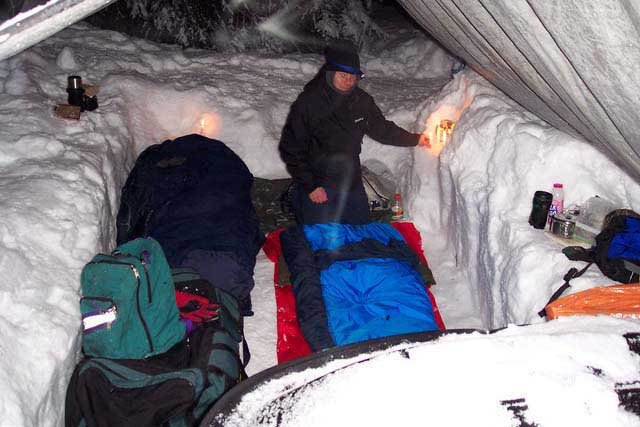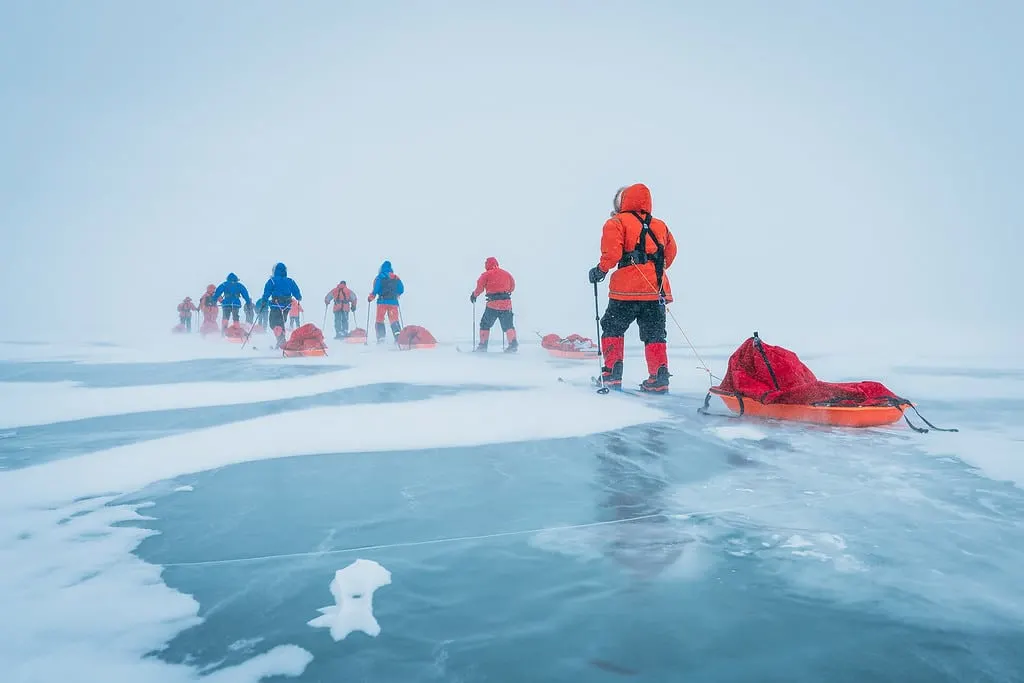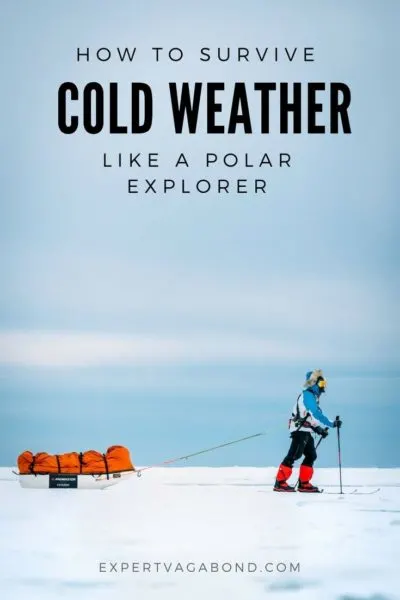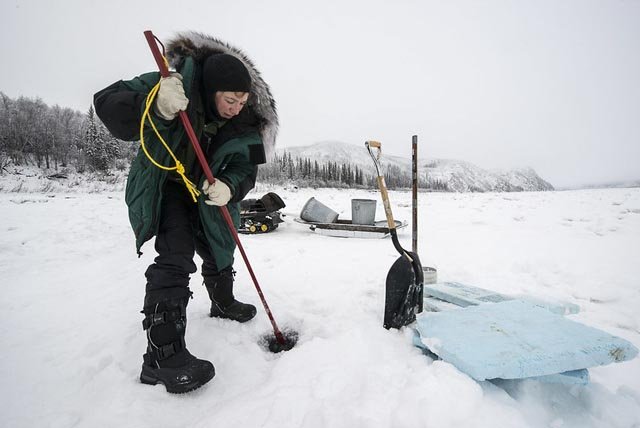So, you find yourself in a situation where you are faced with extreme weather conditions. Whether it’s bone-chilling cold or scorching heat, it’s important to have the necessary skills to survive. In this article, we will explore what it takes to thrive in these extreme climates and how you can equip yourself with the knowledge and tools to stay safe.
Curious to know more? Well, you’re in luck because we’ve got you covered! In the next paragraphs, we will delve into the essential skills required for surviving in extreme cold or hot weather. From learning how to properly layer clothing to understanding the signs of heat exhaustion, we will provide you with practical tips and techniques to help you navigate through these challenging conditions. So, stay tuned and get ready to gain the skills you need to conquer the cold or heat!
Understanding the Extreme Cold or Hot Weather
Extreme weather conditions, whether it be extreme cold or extreme heat, can pose serious risks to your safety and well-being. It is important to understand the effects of such weather conditions and the dangers they can present. By being well-prepared and equipped with the necessary skills, you can increase your chances of surviving in extreme cold or hot weather.
The Effects of Extreme Cold Weather
Extreme cold weather can have severe impacts on your body. Exposure to extremely cold temperatures can result in frostbite and hypothermia. Frostbite occurs when your skin and underlying tissues freeze, leading to loss of feeling and color in the affected areas. Hypothermia, on the other hand, is a dangerous condition where your body loses heat faster than it can produce, causing a dangerously low body temperature.
The Effects of Extreme Hot Weather
Extreme hot weather can also be life-threatening. Heat exhaustion and heat stroke are two common heat-related illnesses that can occur in extreme heat conditions. Heat exhaustion is characterized by heavy sweating, weakness, nausea, and dizziness. If left untreated, it can progress to heat stroke, which is a medical emergency and can cause organ failure, seizures, and even death.
Understanding the Dangers and Risks
In both extreme cold and hot weather, there are several dangers and risks to be aware of. These may include the risk of dehydration, sunburn, heat cramps, and even wildfires in hot weather, while in cold weather there’s the risk of getting lost in blizzards or avalanches. It is crucial to understand the potential hazards and take appropriate measures to mitigate them.
Preparation for Extreme Weather
Being prepared is essential when it comes to surviving in extreme weather conditions. Here are some key steps to help you prepare for extreme cold or hot weather.
Gathering Proper Clothing and Gear
Having the right clothing and gear can make a significant difference in extreme weather conditions. Layering your clothing is important in cold weather, as it helps trap heat and insulates your body. Invest in thermal underwear, waterproof outer layers, insulated jackets, and warm socks and gloves. For extreme hot weather, choose lightweight, breathable clothing that provides sun protection. Don’t forget to wear a hat, sunglasses, and use sunscreen.
Creating an Emergency Kit
Putting together an emergency kit is crucial for survival in extreme weather conditions. The kit should include essential items such as a first aid kit, a flashlight, extra batteries, a multipurpose tool, a whistle, a portable charger, and a survival blanket. Additionally, stock up on non-perishable food items, water, and prescription medications.
Stocking Up on Essential Supplies
In extreme weather conditions, it is important to have a sufficient supply of essential items. Stock up on food, water, and medication that can last you for several days. Consider having a backup power source, such as a generator, to ensure access to electricity. Have a supply of fuel for heating or cooking purposes and keep a fully stocked emergency supply of toiletries and hygiene products.

This image is property of www.primalsurvivor.net.
Building a Shelter
When faced with extreme weather conditions, having a shelter is crucial for protection and survival. Here are some key considerations when building a shelter.
Choosing a Suitable Location
Selecting a suitable location for your shelter is vital. In extreme cold weather, look for areas protected from wind and susceptible to possible snowdrifts. In extreme hot weather, seek out shade and areas with good airflow. Avoid low-lying areas prone to flooding or areas at risk of landslides.
Constructing a Cold Weather Shelter
In extreme cold weather, a properly constructed shelter can help provide insulation and protect you from the elements. Building an igloo, snow cave, or a lean-to with insulated materials can help retain heat. Ensure proper ventilation and also have a warm sleeping bag and blankets to stay warm.
Building a Heat-Resistant Shelter
In extreme hot weather, the aim is to create a shelter that provides shade and allows for airflow. Utilize natural shade or create your own shade using tarps or branches. Consider building a shelter with lightweight materials that allow for ventilation, such as a tent or a tarp shelter. It is important to keep your shelter well-ventilated to prevent heat buildup.
Fire and Heat Management
Fire is a valuable resource in extreme weather conditions. Knowing how to collect and manage firewood, and safely start and maintain a fire can greatly contribute to your survival.
Collecting and Preparing Firewood
Collecting firewood is essential for keeping warm in extreme cold weather. Look for dry wood that is easy to ignite and burns for a longer duration. It is important to collect firewood that may be available without damaging the natural environment.
Starting and Maintaining a Fire
Knowing how to start a fire using various methods, such as using a fire starter or friction-based techniques, is a valuable skill. Once the fire is started, ensure you maintain it by adding firewood gradually to keep it going. Always practice fire safety and keep a safe distance from the fire to prevent accidents.
Utilizing Heat Sources Safely
In extreme cold weather, it is important to utilize heat sources safely to avoid carbon monoxide poisoning or accidental fires. Use devices specifically designed for heating like portable heaters or camping stoves and ensure proper ventilation. Keep flammable items away from heat sources and never leave them unattended.

This image is property of expertvagabond.com.
Finding and Purifying Water
Access to clean drinking water is crucial for survival in extreme weather conditions. Here are some important steps to follow.
Locating a Water Source
In extreme weather conditions, finding a reliable water source is essential. Look for natural water sources such as streams, rivers, or lakes. Be cautious of stagnant water or those that may be contaminated.
Filtering and Purifying Water
It is important to filter and purify water to remove any potential contaminants. Use portable water filters or purification tablets to eliminate harmful bacteria, viruses, and parasites. Boiling water is also an effective method of purifying it.
Preventing Dehydration
Extreme weather conditions can lead to increased water loss through sweating or evaporation. It is crucial to stay hydrated by drinking water regularly, even if you do not feel thirsty. Carry a water bottle with you at all times and consider using electrolyte solutions to replenish lost minerals.
Navigating in Extreme Weather
In extreme weather conditions, navigating your surroundings becomes even more challenging. Here are some tips to help you navigate safely.
Using a Compass and Map
Having a compass and map is essential for navigation. Familiarize yourself with how to use a compass for direction and learn how to read a map effectively. It is important to practice using these tools in normal weather conditions to be confident in using them during extreme weather situations.
Understanding Landmarks and Terrain
Identifying landmarks and understanding the terrain can help you navigate even without technological aids. Look for distinct features such as mountains, rivers, or unique rock formations that can serve as useful navigation points. Pay attention to changes in the landscape and use them as cues for direction.
Navigating Without Technology
While technology such as GPS can be helpful, it is important to be prepared to navigate without it. Learn basic orienteering skills and practice using natural navigation techniques such as observing the position of the sun, stars, or studying the movement of natural elements like rivers or prevailing winds.

This image is property of expertvagabond.com.
Food Procurement and Preservation
Finding and preparing food becomes crucial when surviving in extreme weather conditions. Here are some important considerations.
Hunting, Fishing, and Foraging
In extreme weather conditions, it may be necessary to procure food from the natural environment. Learn how to hunt or fish if it is legally and ethically permitted. Additionally, gain knowledge about edible plants and foraging techniques. Always ensure you have the necessary permits and knowledge to hunt or forage safely.
Identifying Edible Plants and Wildlife
Before consuming any plants or wildlife, ensure you know how to identify them accurately. Improper identification can lead to poisoning or adverse reactions. Carry field guides or seek professional guidance to learn about edible plants and wildlife in your environment.
Preserving and Preparing Food
In extreme weather conditions, it is important to preserve food to have a sustainable food supply. Learn about food preservation techniques such as drying, smoking, or canning to extend the shelf life of perishable items. Ensure proper sanitation when handling and preparing food to prevent foodborne illnesses.
First Aid and Medical Knowledge
Having basic first aid skills and medical knowledge is vital in extreme weather conditions. Here are some key aspects to consider.
Recognizing and Treating Cold-Related Injuries
In extreme cold weather, it is important to recognize and treat cold-related injuries such as frostbite and hypothermia. Learn to identify the symptoms and provide appropriate first aid, such as rewarming frostbitten body parts slowly and seeking immediate medical attention for severe cases of hypothermia.
Managing Heat-Related Illnesses
In extreme hot weather, heat-related illnesses can be life-threatening. Recognize the signs of heat exhaustion and heat stroke and take immediate action by moving to a cooler place, hydrating, and seeking medical help. Additionally, learn cooling techniques such as applying cold compresses or using cooling towels.
Providing Basic First Aid in Extreme Conditions
In extreme weather conditions, it may take longer for medical help to arrive. Having basic first aid skills can make a significant difference in emergencies. Learn how to manage wounds, fractures, or sprains, and carry a comprehensive first aid kit with essential supplies.

This image is property of expertvagabond.com.
Maintaining Mental Health and Resilience
Surviving in extreme weather conditions can take a toll on your mental health. Here are some strategies to help you stay resilient.
Coping Strategies for Extreme Conditions
Develop coping strategies to manage stress and anxiety in extreme weather conditions. Take breaks when needed, practice deep breathing exercises, and engage in activities that bring you joy and relaxation.
Practicing Mindfulness and Stress Management
In challenging conditions, practicing mindfulness can help you stay present and focused. Engage in meditation, yoga, or other relaxation techniques to manage stress and maintain mental clarity.
Building Resilience and Adaptability
Build resilience by developing a positive mindset and adapting to changing situations. Embrace the challenges and learn from them. Focus on problem-solving and cultivate a resilient mindset that allows you to overcome obstacles.
Conclusion
In conclusion, surviving in extreme cold or hot weather requires essential skills and thorough preparation. By understanding the effects of extreme weather, being prepared with appropriate clothing and gear, knowing how to build a shelter, manage fire and heat, find and purify water, navigate without technology, procure and preserve food, possess first aid and medical knowledge, and maintain mental health and resilience, you can increase your chances of survival. Remember, being well-prepared and equipped with the necessary skills is crucial for facing unexpected situations in extreme weather conditions. Stay safe, be vigilant, and always prioritize your well-being.

This image is property of www.primalsurvivor.net.
